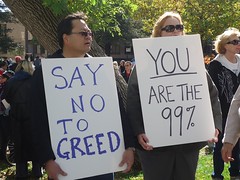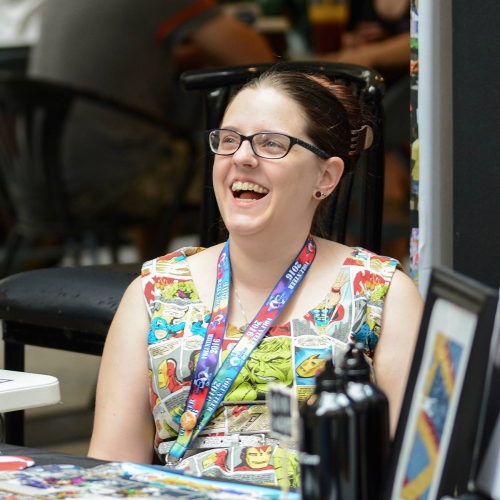I am the 99%
When I was a child, my dad took out loans and worked full time to get a degree so he could make a better life for my family. By the time I graduated high school, he was able to do for me what his parents could not: pay for me to go to college without any debt. This wasn’t without other costs to me–my dad was gone a lot as he took on more responsibilities with his job and, following 9/11, served several tours of duty in the middle east.
When the economy crashed as I was about to start my graduate degree, it wiped out much of my parents’ retirement savings. Instead of trying to rebuild it, they invested in me. I now have two degrees from a highly-ranked but reasonably-priced public university that, because of the opportunity my parents provided for me, I do not owe any money for.
Everyone should be so lucky.
I have a job. It’s a consulting gig, so I only get paid when I’m on a project, but when I have work, it pays well. I’m lucky that my partner got a more steady job out of school and that he’s generous enough to help me fill in the gaps. We buy what we can afford, save for what we want, and cut corners where we can. I’ve had a lot of opportunities in my life. I live comfortably.
Everyone should be so lucky.
My clothes aren’t the newest; most of them have patched or mended holes or came from a secondhand store. I cook at home, eat leftovers, and use coupons when I can. I’m frustrated with the rising price of food and the failure of wages to keep pace with that inflation. I’m frustrated that, even if someone has health insurance, one medical emergency can destroy them financially. I’m frustrated that so many people who “got theirs” don’t care if anyone else ever gets the same opportunities they did.
I got mine. It’s not much, but it’s mine, and I also realize how fragile it is. It could disappear at any moment, but that won’t be caused by providing a leg up to someone without my opportunities and good fortune. It’s not a zero-sum game. Everyone should be as lucky as I have been.
I am the 99%.
We’ve identified the problems. We’re paying 435 people in Washington, DC, to come up with a solution. Get to work, you bums.


